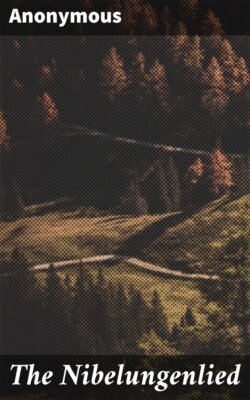Читать книгу The Nibelungenlied - Anonymous - Страница 11
На сайте Литреса книга снята с продажи.
1. The Manuscripts
ОглавлениеAmong the German epic poems of the Middle Ages the Nibelungenlied [4] enjoyed an exceptional popularity, as is evident from the large number of manuscripts—some thirty, either complete or fragmentary—that have been preserved from the centuries immediately following its appearance. Three are of prime importance as texts, namely, those preserved now in Munich, St. Gall, and Donaueschingen, and cited as A, B, and C respectively. Since the time when Lachmann, about a century ago, made the first scientific study of the poem, a whole flood of writings has been poured forth discussing the relative merits of these texts. Each in turn has had its claims advocated with warmth and even acrimony. None of these three principal manuscripts, however, offers the poem in its earliest form; they all point to a still earlier version. It is now generally admitted that the St. Gall manuscript (B), according to which the present translation has been made, contains the best and most nearly original text.
[4] The closing strophe of MS. C calls the poem der Nibelunge liet, or Nibelungenlied, i.e. the lay of the Nibelungen, and this is the title by which it is commonly known. MSS. A and B have in the corresponding strophe der Nibelunge nôt, i.e. the 'need', 'distress', 'downfall' of the Nibelungen. In the title of the poem 'Nibelungen' is simply equivalent to 'Burgundians': the poem relates the downfall of the Burgundian kings and their people. Originally the Nibelungen were, as their name, which is connected with nebel, 'mist', 'gloom', signifies, the powers of darkness to whom the light-hero Siegfried fell a prey. After Siegfried obtains possession of the treasure the name Nibelungen is still applied to Alberich and the dwarfs who guard it and who are now Siegfried's vassals. Then after Siegfried's death the name is given to the Burgundians. It is a mistake to suppose that the name was applied in each case to those who became possessors of the hoard, for Siegfried himself is never so designated.
